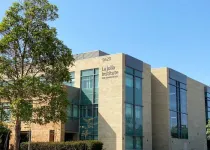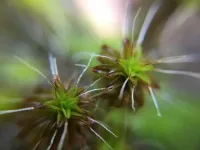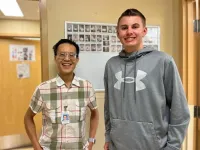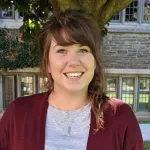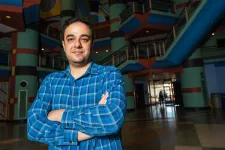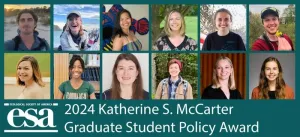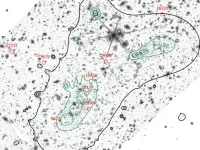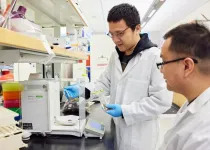(Press-News.org) LA JOLLA, CA—Most cancers are thought to evade the immune system. These cancers don't carry very many mutations, and they aren’t infiltrated by cancer-fighting immune cells. Scientists call these cancers immunologically "cold."
Now new research suggests such cancers aren't as "cold" as once thought. Researchers from the La Jolla Institute for Immunology (LJI), UC San Diego Moores Cancer Center, and UC San Diego, have found that patients with "cold" tumors actually do make cancer-fighting T cells.
This discovery opens the door to developing vaccines or therapies to increase T cell numbers and treat many more types of cancer than currently thought possible.
"In virtually every patient we've looked at, with every kind of cancer we've analyzed, we can detect pre-existing natural immunity against their tumor's immunogenic subset of mutations known as neoantigens," says LJI Professor Stephen Schoenberger, Ph.D., who co-led the new study with LJI Professor Bjoern Peters, Ph.D. "Therefore, we think these patients may actually benefit from empowering this response through personalized immunotherapy."
"Every cancer patient is different," adds Peters. "But this research is an important step toward finding immune cell targets relevant for individual patient tumors."
This new study was published recently in Science Translational Medicine and includes study co-first authors Aaron M. Miller, M.D., Ph.D., associate professor of medicine at UC San Diego School of Medicine and medical oncologist at UC San Diego Health, and Zeynep Koşaloğlu-Yalçın, Ph.D., LJI Instructor.
A new approach to finding cancer-fighting cells
T cells are always on the lookout for microbial invaders such as viruses and bacteria, which trigger responses from the innate and adaptive arms of the immune system. Cancers, being of "self" origin, don’t trigger the same innate immune response and are thought to thereby evade immune detection.
In some cases, especially with highly mutated tumors such as lung cancers and melanomas, the tumors look sufficiently different from normal, healthy cells to generate a T cell response against some of the mutations they carry.
Scientists have developed cancer therapies, such as immune checkpoint inhibitors, that take advantage of this natural T cell reactivity. Today, many patients with highly mutated types of cancer receive life-saving immunotherapies that harness the body's own T cells to kill cancer cells.
Unfortunately, immunotherapies aren't usually recommended for patients with immunologically "cold" tumors. Their tumors look especially similar to healthy tissue, which makes it hard for the immune system to detect the tumors and target them for destruction.
The new study started with a query from Miller and Ezra Cohen, MD, co-author of the study and medical oncologist at UC San Diego Health. Miller and Cohen wanted to take a closer look at T cell responses to "cold" tumors, and researchers with the LJI Center for Cancer Immunotherapy were eager to collaborate.
UC San Diego Moores Cancer Center scientists provided samples from 13 patients with eight different types of advanced solid tumors: microsatellite stable colorectal, pancreatic neuroendocrine, bile duct, ovarian, pancreatic ductal adenocarcinoma, appendiceal, head and neck squamous cell carcinoma, and renal cell malignancies. These cancers are known for being especially difficult to treat and generally don’t respond to checkpoint inhibitors alone.
The researchers first used genetic sequencing tools to identify mutations in these different cancers. Peters and his team then developed a bioinformatics approach to prioritize the mutations which might be "seen" as neoantigens by these T cells. This work showed where cancer cells might be vulnerable to T cell attack.
Next, the researchers went back to the patient samples. Did any patients actually produce T cells that could recognize these mutations?
The results were very encouraging. All 13 patients were already making T cells that could recognize mutations in their own cancers. These T cells were rare—but they were clearly there.
The researchers call this new approach "Identify, Predict, Validate," or IPV. The researchers have gone on to use the IPV approach to detect T cells in more than 130 patients with 25 different types of cancer.
"The rapid and efficient identification of a patient’s tumor-specific neoantigens is crucial to the development of personalized immunotherapies, including neoantigen-specific cancer vaccinations,” says Miller.
"The potential for a 'cure from within' is in every cancer patient we've looked at," Schoenberger adds.
Developing new cancer vaccines
The researchers are now tackling a different problem: Patients with "cold" tumors just don't make enough cancer-fighting T cells. "The patients who gave samples for this study were terminally ill," says Schoenberger. "So you could argue that these T cells weren't doing what we would like them to to do, which is to eradicate the tumor they recognize."
The researchers continue to develop ways to increase the number and potency of neoantigen-specific T cells. For the study, researchers exposed T cells in the patient samples to the same mutations present in the original cancer cells. When T cells saw their targets, they naturally began producing effector cytokines and proliferating.
Schoenberger says personalized cancer vaccines can boost T cell numbers in a similar way. Schoenberger and his colleagues at UC San Diego Moores Cancer Center are currently conducting a clinical trial to test next-generation vaccines against different cancers. "The IPV approach helps us identify therapeutically 'actionable' mutations and improve the potency of these vaccines," says Schoenberger.
“Our study is a wonderful example of institutional collaboration. It represents bench-to-bedside translational research that harnesses the strengths of each institution," says Miller. “We are also encouraged that IPV can be used as a non-invasive tool for immune monitoring of enhanced T-cell responses in patients receiving effective immunotherapy treatments.”
Additional authors of the study, "A functional identification platform reveals frequent, spontaneous neoantigen specific T cell responses in patients with cancer," include Luise Westernberg, Leslie Montero, Milad Bahmanof , Angela Frentzen, Manasa Lanka, Ashmitaa Logandha Ramamoorthy Premlal, Gregory Seumois, Jason Greenbaum, Spencer E. Brightman, Karla Soria Zavala, Rukman R. Thota, Martin S. Naradikian, Samir S. Makani, Scott M. Lippman, and Alessandro Sette.
This study was supported by Ralph and Fernanda Whitworth, the Immunotherapy Foundation, Pedal The Cause, and the San Diego Center for Precision Immunotherapy.
DOI: 10.1126/scitranslmed.abj9905
About La Jolla Institute
The La Jolla Institute for Immunology is dedicated to understanding the intricacies and power of the immune system so that we may apply that knowledge to promote human health and prevent a wide range of diseases. Since its founding in 1988 as an independent, nonprofit research organization, the Institute has made numerous advances leading toward its goal: life without disease. Visit lji.org for more information.
END
A step toward personalized immunotherapy for all
Scientists find evidence that all cancer patients mount an immune response to their tumors, suggesting that many more patients could benefit from personalized immunotherapy
2024-02-28
ELSE PRESS RELEASES FROM THIS DATE:
Drying without dying: Tracing water scarcity coping mechanisms from mosses to flowering plants
2024-02-28
Imagine: You find the dried-up remains of a once green and lush philodendron on your bookshelf and realize you can’t remember the last time you watered your houseplants. You soak the soil with water, hoping you can breathe life back into its desiccated husk, but it is futile. The plant has been too dehydrated for too long, and irreparable damage has been done.
Now imagine that it isn’t your neglected houseplants that have been subjected to an unexpectedly dry growing season, but a field of wheat. With changes in global climate, such things are becoming more common and more of a concern for farmers, consumers, and researchers alike as the threat to food security intensifies.
But ...
Study finds drought fuels invasive species after wildfires
2024-02-28
Irvine, Calif., Feb. 28, 2024 — In a study recently published in the journal Ecology, University of California, Irvine scientists uncover the intricate dance between drought, wildfires and invasive species in Southern California's coastal sage scrub ecosystems.
Titled “Long-term drought promotes invasive species by reducing wildfire severity,” the research, led by Sarah Kimball, Ph.D., director of the Center for Environmental Biology at UCI, sheds light on the critical interplay of these factors and its ...
A safer treatment path for high-risk children to overcome food allergies
2024-02-28
New research from the University of British Columbia reveals a safe path to overcoming food allergies for older children and others who can’t risk consuming allergens orally to build up their resistance.
It’s called sublingual immunotherapy (SLIT), and it involves placing smaller amounts of food allergens under the tongue.
A study conducted by UBC clinical professor and pediatric allergist Dr. Edmond Chan and his team at BC Children’s Hospital Research Institute found SLIT to be as safe and effective for high-risk older children and adolescents ...
Researchers create method to detect cases of anemia in archaeological remains
2024-02-28
Hamilton, ON, Feb. 28, 2024 – Diagnosing anemia in living people is typically a matter of a routine blood test.
Retrospectively diagnosing anemia in people who died decades or even centuries ago is much more challenging since there is no blood left to test.
Anthropologists at McMaster University and the University of Montreal, working with a hematologist colleague, have overcome that obstacle by developing a way to detect anemia through patterns in the structures of bones.
Paleopathologists Megan Brickley, ...
Data-processing tool could enable better early stage cancer detection
2024-02-28
Cancers begin with abnormal changes in individual cells, and the ability to track the accumulation of mutations at the single-cell level can shed new light on the early stages of the disease. Such knowledge could enable more effective early detection and treatment options for patients as well as more accurate predictions of disease progression.
According to a paper in Nature Communications, a team of Rice University researchers led by Luay Nakhleh has developed a platform for integrating DNA and RNA data from single-cell sequencing with greater speed and precision than more recent, state-of-the-art technologies. The method, mapping cross domain ...
ESA 2024 Graduate Student Policy Award Cohort named
2024-02-28
The Ecological Society of America is pleased to announce the recipients of the 2024 Katherine S. McCarter Graduate Student Policy Award (GSPA). Students in the 2024 cohort are engaged in advocacy with an interest in science policy. Awardees will travel to Washington, D.C., for policy, communication and career training followed by meetings with lawmakers on Capitol Hill.
“I am thrilled to welcome this latest cohort of Graduate Student Policy Awardees,” said ESA President Shahid Naeem. “The caliber of this year's awardees, as has been true for awardees in our program since its inception, reflects ...
Five Sandia Labs scientists earn 2024 Black Engineer of the Year Awards
2024-02-28
Dissecting doorbells, exploring music, mastering retail software, love of the arts and old-fashioned hard work were early paths that led five Sandia National Laboratories engineers to their callings and recently earned them national Black Engineer of the Year Awards.
The awards, recognizing outstanding achievements in engineering, science and technology, include Science Spectrum Trailblazer, Modern Day Technology Leader, Most Promising Engineer in Industry and the Senior Investigator Award.
Each Sandia award winner has made significant contributions in creative, innovative and science-based systems engineering solutions to help solve our nation’s most challenging national security ...
'Cosmic lighthouses' that cleared primordial fog identified with JWST
2024-02-28
UNIVERSITY PARK, Pa. — Scientists working with data from NASA's James Webb Space Telescope (JWST) have obtained the first full spectra of some of the earliest starlight in the universe. The images provide the clearest picture yet of very low-mass, newborn galaxies, created less than a billion years after the Big Bang, and suggest the tiny galaxies are central to the cosmic origin story.
The international team of researchers, including two Penn State astrophysicists, published their results ...
Avian influenza virus is adapting to spread to marine mammals
2024-02-28
The highly pathogenic avian influenza virus H5N1 has adapted to spread between birds and marine mammals, posing an immediate threat to wildlife conservation, according to a study from the University of California, Davis, and the National Institute of Agricultural Technology (INTA) in Argentina.
The study, published in the journal Emerging Infectious Diseases, is the first genomic characterization of H5N1 in marine wildlife on the Atlantic shore of South America.
For the study, scientists collected brain samples from four sea lions, one fur seal and a tern found dead at the most affected sea lion rookery in Argentina. All ...
Study reveals accelerated soil priming under climate warming
2024-02-28
A first-of-its-kind study led by researchers at the University of Oklahoma highlights a crucial biosphere feedback mechanism and its effects on releasing soil carbon into the atmosphere.
Jizhong Zhou, the director of the Institute for Environmental Genomics and George Lynn Cross Research Professor in the School of Biological Sciences at OU, is the corresponding author of, “Experimental warming accelerates positive soil priming in a temperate grassland ecosystem,” recently published in Nature Communications. Zhou said the study is the first to utilize laboratory and field experimental ...
LAST 30 PRESS RELEASES:
A biological material that becomes stronger when wet could replace plastics
Glacial feast: Seals caught closer to glaciers had fuller stomachs
Get the picture? High-tech, low-cost lens focuses on global consumer markets
Antimicrobial resistance in foodborne bacteria remains a public health concern in Europe
Safer batteries for storing energy at massive scale
How can you rescue a “kidnapped” robot? A new AI system helps the robot regain its sense of location in dynamic, ever-changing environments
Brainwaves of mothers and children synchronize when playing together – even in an acquired language
A holiday to better recovery
Cal Poly’s fifth Climate Solutions Now conference to take place Feb. 23-27
Mask-wearing during COVID-19 linked to reduced air pollution–triggered heart attack risk in Japan
Achieving cross-coupling reactions of fatty amide reduction radicals via iridium-photorelay catalysis and other strategies
Shorter may be sweeter: Study finds 15-second health ads can curb junk food cravings
Family relationships identified in Stone Age graves on Gotland
Effectiveness of exercise to ease osteoarthritis symptoms likely minimal and transient
Cost of copper must rise double to meet basic copper needs
A gel for wounds that won’t heal
Iron, carbon, and the art of toxic cleanup
Organic soil amendments work together to help sandy soils hold water longer, study finds
Hidden carbon in mangrove soils may play a larger role in climate regulation than previously thought
Weight-loss wonder pills prompt scrutiny of key ingredient
Nonprofit leader Diane Dodge to receive 2026 Penn Nursing Renfield Foundation Award for Global Women’s Health
Maternal smoking during pregnancy may be linked to higher blood pressure in children, NIH study finds
New Lund model aims to shorten the path to life-saving cell and gene therapies
Researchers create ultra-stretchable, liquid-repellent materials via laser ablation
Combining AI with OCT shows potential for detecting lipid-rich plaques in coronary arteries
SeaCast revolutionizes Mediterranean Sea forecasting with AI-powered speed and accuracy
JMIR Publications’ JMIR Bioinformatics and Biotechnology invites submissions on Bridging Data, AI, and Innovation to Transform Health
Honey bees navigate more precisely than previously thought
Air pollution may directly contribute to Alzheimer’s disease
Study finds early imaging after pediatric UTIs may do more harm than good
[Press-News.org] A step toward personalized immunotherapy for allScientists find evidence that all cancer patients mount an immune response to their tumors, suggesting that many more patients could benefit from personalized immunotherapy
